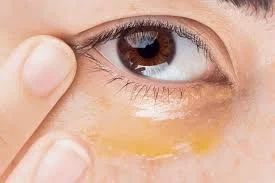Chandigarh, 15 Sept — Moisturizing is often seen as a cosmetic step, but dermatologists stress it is a crucial part of skin health. Experts say consistent hydration helps protect the skin barrier, slows down premature aging, and even reduces the risk of certain conditions.
“Moisturizers aren’t just beauty products — they’re medicines for the skin barrier,” said Dr. Anjali Verma, a Delhi-based dermatologist. “The skin is the body’s first line of defense, and without hydration, it becomes more prone to irritation, infection and inflammation.”
The outermost layer of the skin, called the stratum corneum, functions like a brick wall: skin cells are the bricks and natural oils act as mortar. When this barrier is intact, it locks in water and keeps irritants out. Lack of moisture disrupts the wall, leading to dryness, cracks, redness, and itchiness.
Dermatology studies show that well-moisturized skin maintains elasticity and reduces the appearance of fine lines. A 2023 review in the Journal of Clinical Dermatology highlighted that moisturizers containing ceramides, hyaluronic acid and glycerin restore hydration at a cellular level.
“Think of it like sealing a leaky roof,” explained Dr. Verma. “If you don’t, the house will keep getting damaged. Moisturizers seal tiny gaps in the skin barrier and stop water from evaporating.”
Tips for Everyday Moisturizing
Dermatologists recommend tailoring moisturizers to skin type, climate and age:
- Right time, right way: The best time to moisturize is within 2–3 minutes of bathing, when skin is still damp. This locks in water.
- Know your ingredients: Look for humectants (like hyaluronic acid, glycerin), emollients (like shea butter, squalane) and occlusives (like petrolatum). Together, these hydrate, soften and seal.
- Sensitive skin care: Choose fragrance-free, hypoallergenic creams. Avoid harsh alcohol-based lotions.
- Seasonal switch: In humid weather, lighter, water-based gels work best. In winter, opt for thicker creams or ointments.
- Don’t forget hands and feet: These areas lose moisture quickly, especially with frequent washing. Night creams and cotton gloves/socks can help.
Experts say moisturizing also benefits people with chronic skin conditions. For eczema and psoriasis, daily hydration reduces flare-ups. In acne-prone skin, lightweight, non-comedogenic moisturizers prevent irritation caused by topical treatments like retinoids.
“Skipping moisturizer because you have oily skin is a myth,” said Chandigarh-based dermatologist Dr. Raghav Mehta. “Oily skin still needs hydration. Without it, sebaceous glands produce more oil to compensate, worsening breakouts.”
Regular moisturizing has a preventive role too. Dermatologists note that hydrated skin resists environmental damage better — from pollution, UV rays, and temperature changes. Over time, this means fewer wrinkles and less dullness.
“In the same way we don’t skip brushing teeth, we shouldn’t skip moisturizing,” said Dr. Mehta. “It’s a simple, inexpensive habit with lifelong benefits.”
Moisturizing is more than a beauty ritual; it is daily maintenance for the body’s largest organ. With science-backed ingredients and a consistent routine, experts say healthy, resilient skin is within reach for everyone.

